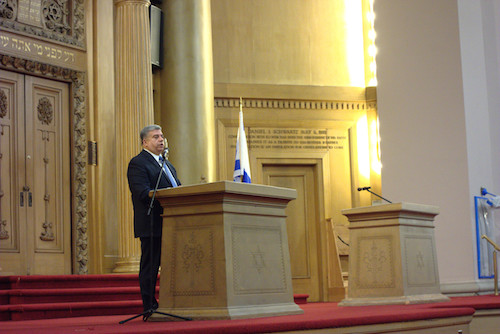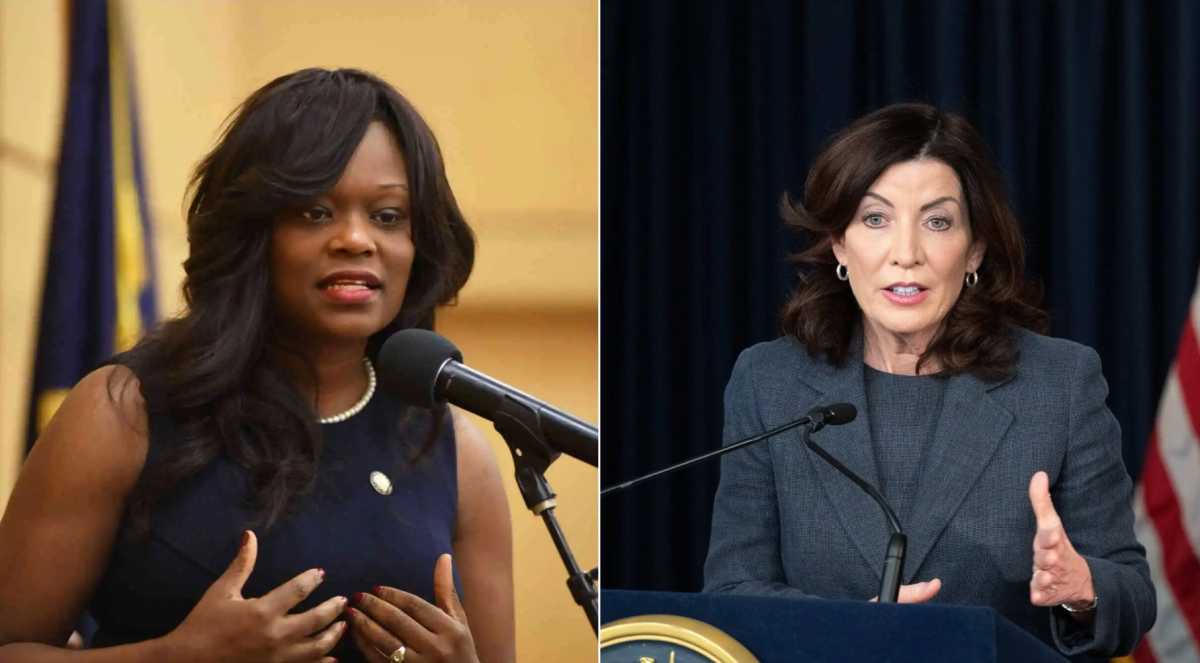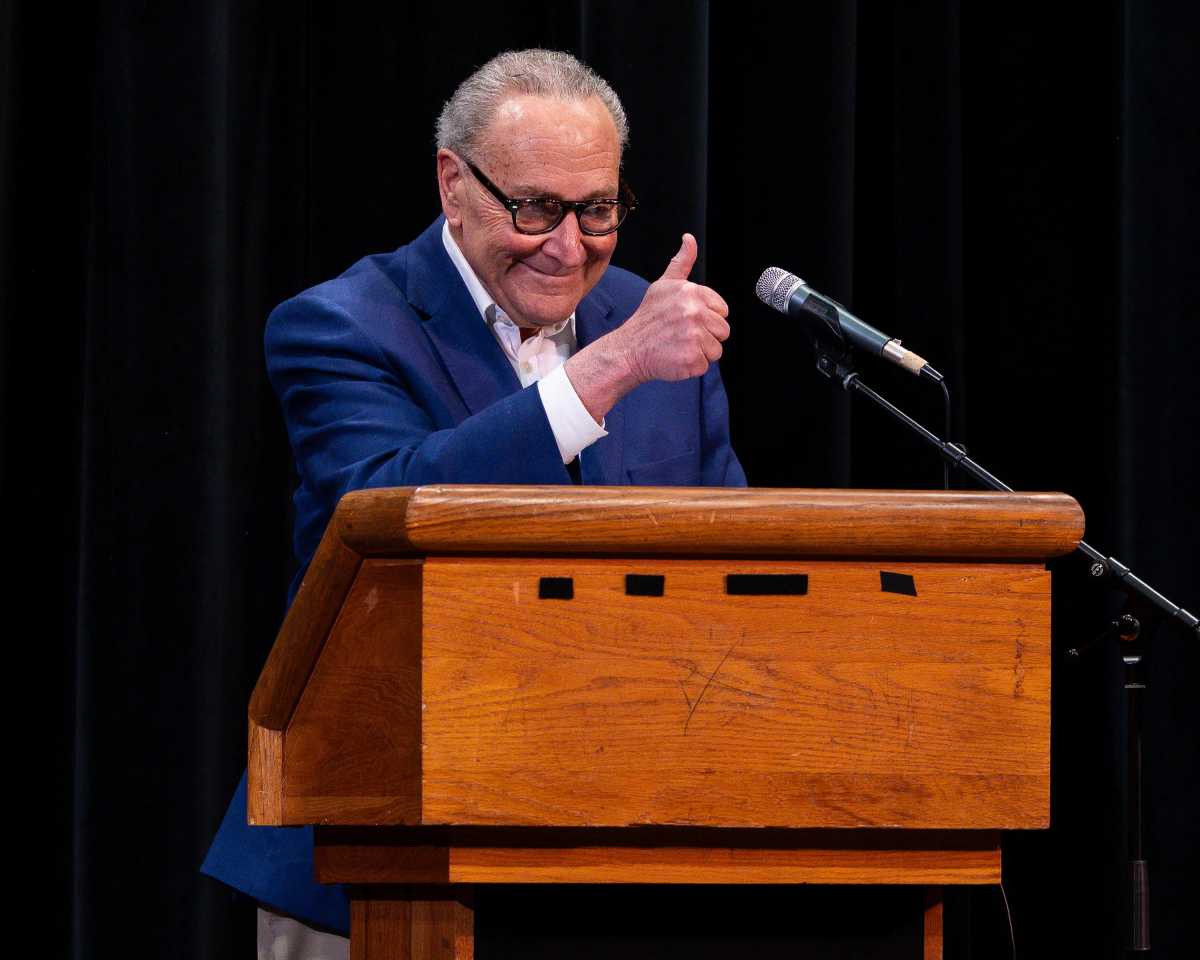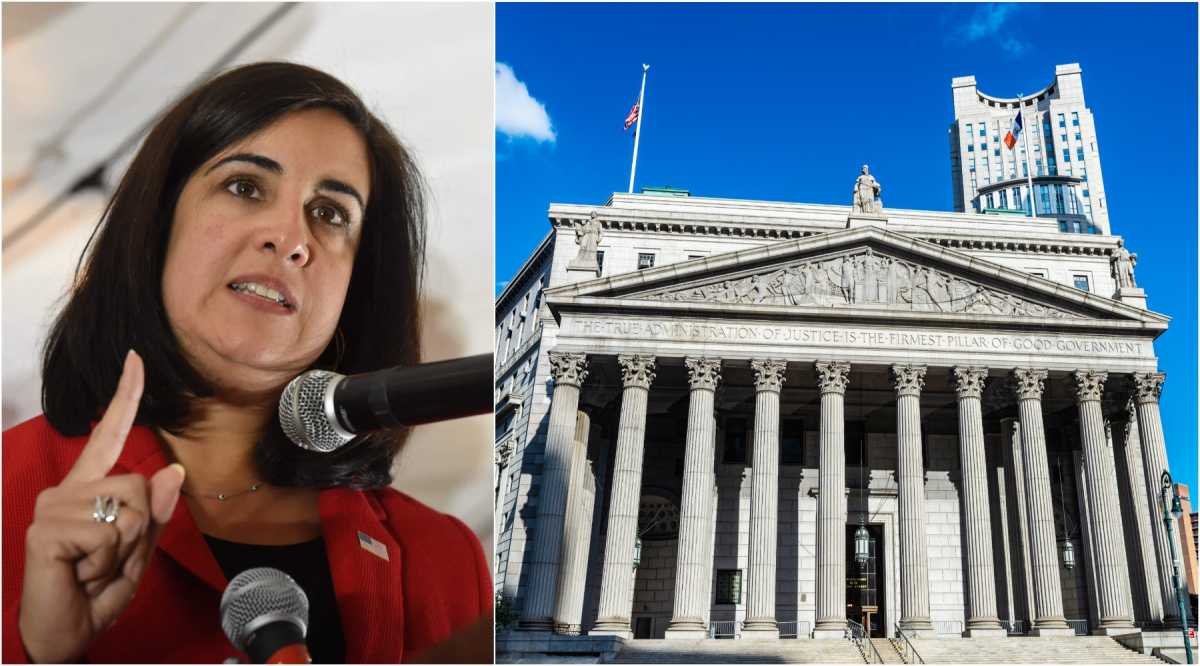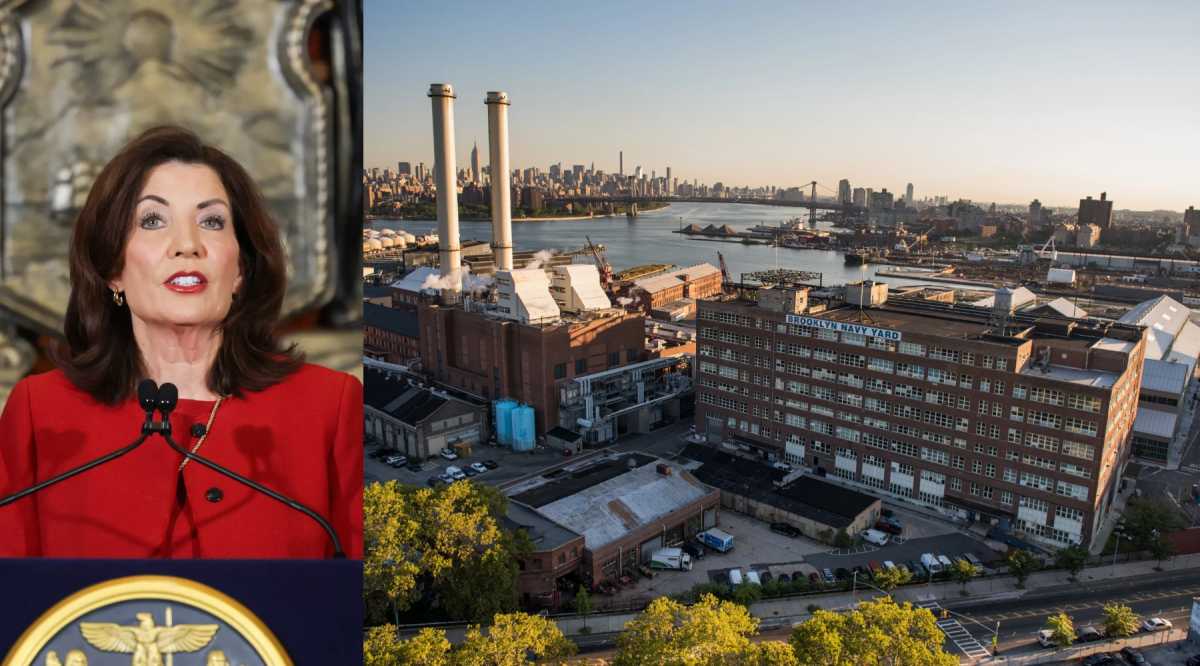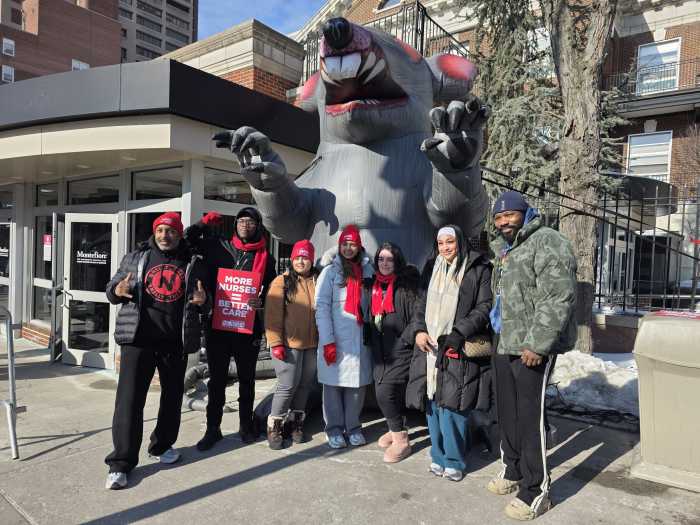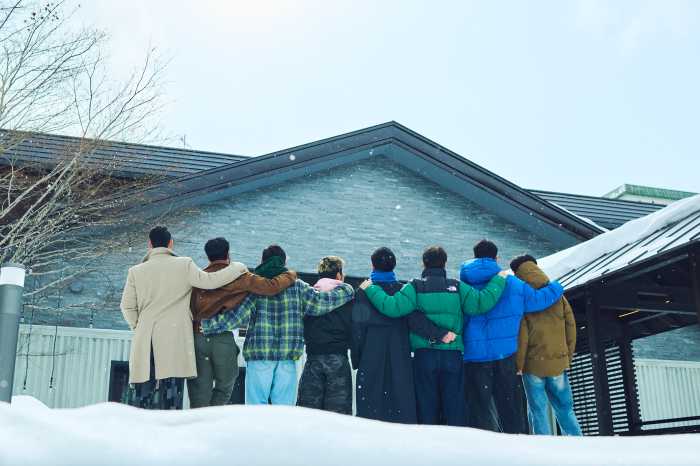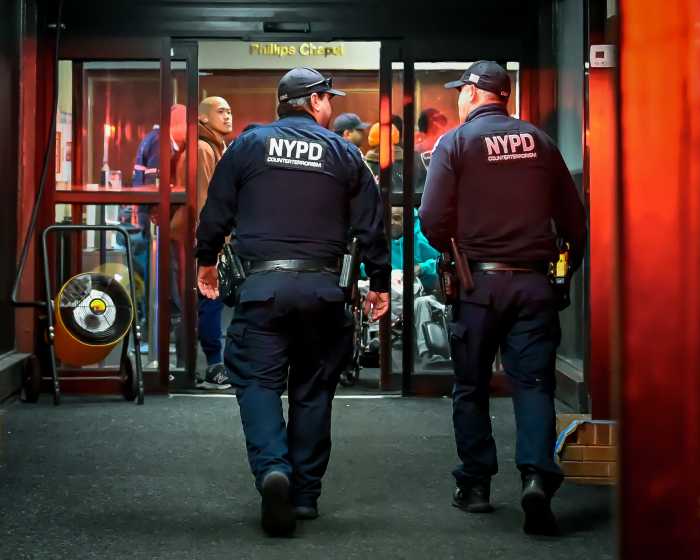For the first time since he won election as Brooklyn’s District Attorney earlier this month, Eric Gonzalez came before community members, elected officials, and activists at Park Slope’s Congregation Beth Elohim (CBE).
The borough’s top prosecutor fielded questions on ‘Broken Windows’ policing, bail policy, and open file discovery, and discussed his plans for the coming term.
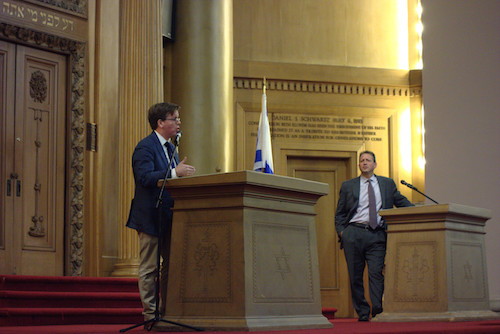
The activist organization #GetOrganizedBrooklyn and CBE hosted the forum with support from a variety of faith institutions and community organizations across Brooklyn. At least 300 residents filled the pews of the synagogue. Also in attendance was City Council Member Brad Lander (D-Park Slope, Windsor Terrace, Kensington) and Assembly Member Robert “Bobby” Carroll (D-Park Slope, Windsor Terrace, Kensington).
“Even as we’ve got this responsibility to resist the injustice, and bigotry, and hatred, and corruption that is rolling at it from Washington, part of it is a wakeup call to pay more attention to what has already been going on in our own backyards,” said Lander. “While we have to fight back against Donald Trump and Jeff Sessions and the desire to increase mass incarceration, we’ve got to be paying more attention here, and we can make real progress here.”
First, CBE representatives questioned Gonzalez on his approach to Broken Windows Policy, which puts police resources into addressing small-scale criminal activity, such as turnstile jumping and vandalism, in the attempt to discourage serious crime. Opponents of the policy say that it does not decrease crime, unfairly targets low-income New Yorkers of color, and puts undocumented immigrants at risk.

“Largely, I believe my job is to make sure that the communities of Brooklyn are safe, and that we do things to make our system a more fair and just place. I know that we can do both,” said Gonzalez, noting a significant decrease in fatal homicides in Brooklyn. “I know that there were a lot of naysayers in the past who said that if we didn’t prosecute these broken window type offenses, that our community would be less safe. In Brooklyn, we’ve shown them just the opposite.”
Many of the questions surrounded Brooklyn’s bail system. Moderators acknowledged that Gonzalez’s office had reduced the number of misdemeanor cases for which prosecutors ask for bail. But they argued that residents were still being incarcerated for not being able to afford bail and asked Gonzalez to commit to ensuring that prosecutors did not ask for unreasonable bail amounts that might imprison defendants unnecessarily.
Corey Bates, a member of Vocal NY, told the story of two separate occasions in which he was held at Rikers Island because he could not post bail.
One arrest was for turnstile jumping on his way to his first day of work. The other, this summer, was due to a false accusation of assault from a family member. Bates said that after arriving at the precinct in the attempt to clear his name, he was arrested and taken to Central Bookings.
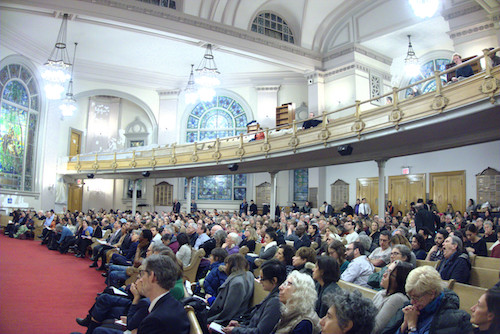
Bail was set at $1,000, and Bates argued that if the Brooklyn Community Bail Fund had not posted bail on his behalf, he would have been forced to remain at Rikers Island for over a month.
“I was innocent, I had not done anything wrong. But they still asked for bail in an amount I could not afford. Someone with more money could have just paid their way out, but I was going to Rikers Island,” said Bates. “How will the District Attorney make sure that people aren’t going to jail without any evidence, just to have the cases dismissed?”
Gonzalez agreed that “if prosecutors are going to ask for bail, they’d better have a good reason,” adding that his office would have to reconsider whether or not bail was appropriate in such cases at all. He said that new policy requires prosecutors to justify why they are asking for bail, arguing that this would change the culture behind the issue. He also discussed efforts to generate a report on bail statistics, to understand better what could be improved about the process.
But he added that in the future, should a person arrested for a nonviolent crime go free without the prosecution requesting bail and later commit a violent crime, he would need support from the community.
“I’m going to need you to stand up for us at that point, when we say ‘we didn’t ask for bail at that point because it was the right thing to do, and we can’t second guess because the person then did something that was horrible,’” said Gonzalez.
Gonzalez also discussed open-file policies, which require prosecutors to make all evidence available, even information helpful to the defense, well before any trial.
“It’s about transparency. That this government, which has the authority to put you in prison, has to be playing by the same rules and the same fairness.” said Gonzalez, who added that he was the only DA in the state speaking in favor of the policies. “It can’t hold on to evidence that either inculpates you or exculpates you until the last moment.”
Despite Gonzalez’s support for open-file policies, CBE moderators referenced cases in the Brooklyn system in which defendants were denied information that could free them.
One case involved a man imprisoned at Rikers Island for 15 days, during which he was beaten badly by inmates, because exonerating lab evidence provided to the DA’s office was not made immediately available to his defense.
“When I hear stories like that where the system failed, it makes me angry. It makes me want to lash out, because that is the dysfunction that we face,” said Gonzalez. “That the information was known and we had Tyrone sitting in jail for fifteen days needlessly; It’s outrageous, it’s not sufficient for me just to say that discovery processes have to be better, but I also have to hold people accountable in my office.”


